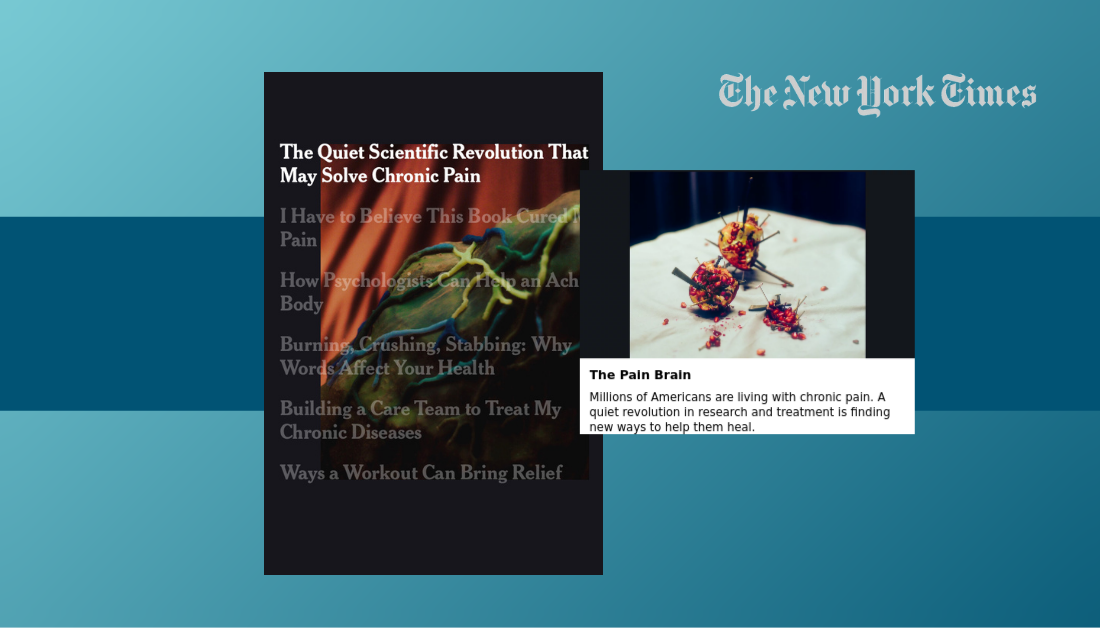Last week, I read a series of seven articles in the NYT that considered chronic pain from a variety of different angles. As someone who has been working on a book about healing, I’m always interested in the physical, neurological, social, and spiritual dimensions of pain as well as the prospects for experiencing relief from that pain.
The Times coverage included reporting about how our brain experiences pain, the role of psychology and emotions in curing pain, the way language affects pain, the need for social support in addressing pain, and more. (Here is a link to one of the articles. If you scroll to the bottom of that article, you’ll see links to all of the other ones as well.)
Talking About Pain: Helpful or Harmful
But I’m also really interested in understanding why many people with chronic pain saw these articles as harmful and hurtful. On Twitter, various people cited the lack of attention to listening to patients’ narrate their own experiences. They referred to the lack of compassion and the role of racism and many other biases in healthcare. @ZaksZosia tweeted, “Disabled people scare non-disabled ppl because we embody the reality of (messy) human interdependence.”
Alana Saltz shared her story about how cognitive behavior therapy did not help her chronic pain, and how the NYT decided not to include her perspective here. And this essay explores a history of bias against people with disabilities in the NYT.
We Need a Comprehensive Approach to Pain and Healing
What all these new scientific data and personal stories tell me is that we need a comprehensive approach not only to pain management, not only to pain assessment, but also to how we understand healing.
My own contribution to a conversation about pain is not in the area of neurobiology or psychotherapy but rather in the ways of a Judeo-Christian understanding of the interconnected whole of bodies, minds, and souls with God and with community. (Which is the topic of my forthcoming book, To Be Made Well.)
Have you experienced chronic pain or unexplained illness at all? What helped? What hurt? I’d love to hear your stories too.
Learn more with Amy Julia:
- More Favorites and AJB Recommends
- Pain Is Like a Flashing Light
- S4 E2 | Where Is God When the Pain Won’t Stop? with Liuan Huska
If you haven’t already, you can subscribe to receive regular updates and news. You can also follow me on Facebook, Instagram, Twitter, Pinterest, YouTube, and Goodreads, and you can subscribe to my Love Is Stronger Than Fear podcast on your favorite podcast platform.




